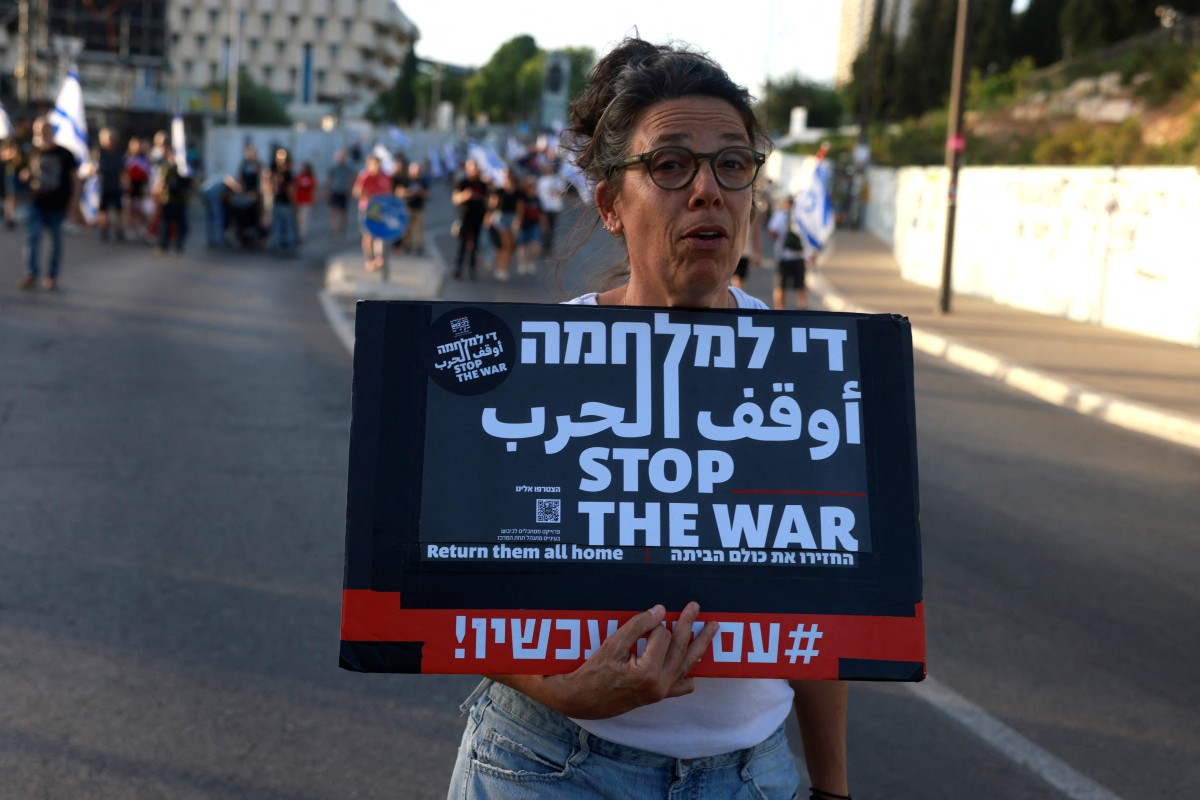Palestinian Territories — Israeli strikes on Tuesday killed at least 13 people in central Gaza, the civil defense agency in the territory said, although fighting has largely subsided as Muslims mark Eid al-Adha.
An Israeli announcement at the weekend of a daily “pause” of military activity to facilitate aid flows coincided with the Muslim holiday and has brought relative calm to parts of the besieged Gaza Strip after more than eight months of war.
Witnesses reported gunfire and artillery shelling near Nuseirat refugee camp in central Gaza, where the civil defense agency said at least 13 people died in two separate strikes on a family home and on a commercial building.
Al-Awda hospital in central Gaza said it received the bodies of “six martyrs and 15 wounded as a result of Israeli air strikes on various areas in the central and southern Gaza Strip”.
Witnesses and the Hamas government media office said there were some strikes and fighting elsewhere in northern and central Gaza.
In a statement, the Israeli army said its operations continued Tuesday in central and southern Gaza including Rafah city on the border with Egypt.
“We’ve been taking apart Hamas in Rafah for the last month,” military spokesman David Mencer told a press briefing.
Mounting criticism –
Amid mounting criticism over his handling of the hostage crisis, Prime Minister Benjamin Netanyahu invited the relatives of killed hostages to his home, several families told AFP Tuesday.
But one relative, who spoke on condition of anonymity, said she would decline the invitation, saying, “he remembered a little late to invite us”.
In Jerusalem on Monday, thousands of Israelis protested against Netanyahu’s government over its failure to negotiate the release of scores of hostages held in the Palestinian territory since Hamas’s October 7 attack.
Demonstrators rallied outside the parliament and near Netanyahu’s residence, demanding early elections and chanting “All of them! Now!”, referring to the release of hostages.
“We need to shut down the country in order to make the government fall,” said Yaacov Godo, whose son Tom was killed during the Hamas attack, at the start of what activists describe as a week of anti-government action across the country.
The war should have stopped “a long time ago”, and the return of the captives would “end this story”, Godo said.
Israeli media said another rally was planned in front of the parliament building late Tuesday.
US, Qatari and Egyptian mediation efforts for a truce deal have stalled for months.
‘Death and suffering’ –
In Rafah, where the Israeli military has said it would pause fighting along a key route in the city’s east, witnesses saw Israeli military vehicles and reported shelling in other areas.
United Nations rights chief Volker Turk told the UN Human Rights Council in Geneva he was “appalled by the disregard for international human rights” and “unconscionable death and suffering”.
The United Nations has said aid access to Gaza has been severely hindered by factors including insecurity, the closing of crossing points to the territory, and Israeli procedural delays.
Since the start of Israeli military operations around Rafah in early May, when the vital crossing was seized and closed, “aid delivery and humanitarian access deteriorated further”, Turk said.
‘Urgent’ de-escalation –
Hamas demanded the opening of both the Kerem Shalom and Rafah crossings, the group said in a statement accusing Israel and its close ally the United States of the “crime of preventing the entry of aid and food as a tool for political pressure”.
Displaced Palestinian Ali Hassan, sheltering in a tent in central Gaza’s Deir al-Balah, told AFP “Eid al-Adha this year is not like previous holidays.”
“There is no meat or sacrificial animals, we don’t even have clothes for the children,” he said.
The war has sent tensions soaring across the region, with regular cross-border clashes between Israeli forces and Lebanon’s Iran-backed Hezbollah, a Hamas ally.
In a message for Eid al-Adha, US President Joe Biden has called for the implementation of a ceasefire plan he outlined last month, saying it was “the best way to end the violence”.
US envoy Amos Hochstein said the plan would ultimately lead to “the end of the conflict in Gaza”.
Biden’s proposal would bring an initial six-week pause to fighting and Hamas would free hostages in exchange for the release of Palestinian prisoners held by Israel.
An Israeli negotiator told AFP that tens of hostages “are alive with certainty”, stressing Israel could not commit to ending the war until all the captives are freed.








